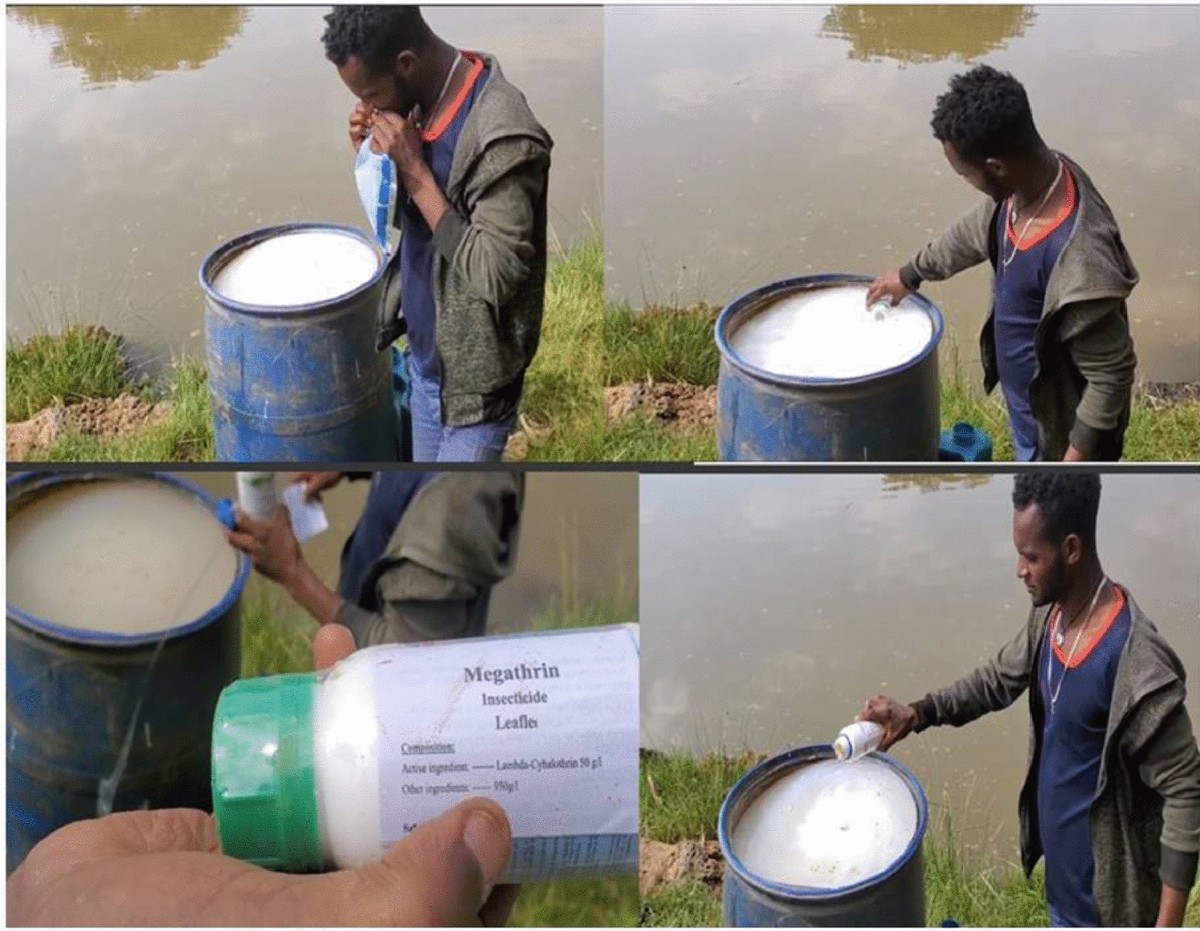
Title: Lethal Pesticides in South African Townships: A Hazardous Blend of Disparity, Urban Decline, and Regulatory Shortcomings
In the extensive urban townships of South Africa, the enduring impacts of apartheid and economic disparity continue to dictate access to essential services, leading to a perilous situation. Dangerous agricultural pesticides, such as terbufos and aldicarb—both either banned or heavily restricted in numerous countries—are being misused by black-market vendors as rat poison in impoverished neighborhoods. The consequence: rampant accidental poisonings, food contamination, and the heartbreaking loss of numerous children’s lives.
Last October, Edith Lokwane’s seven-year-old daughter became gravely ill after consuming what seemed to be innocuous street food while returning home from school in Soweto, the nation’s largest township. Although the child was saved after being quickly taken to a hospital due to severe vomiting and respiratory issues, one of her classmates tragically died. The community’s initial shock transformed into overwhelming sorrow by November, as at least 23 children lost their lives and over 900 were hospitalized after ingesting food contaminated with extremely neurotoxic pesticides.
These occurrences were not isolated events. They exposed a pervasive and overlooked threat—extremely toxic agricultural substances, intended solely for industrial crop applications, infiltrating informal urban markets and households.
What Are Terbufos and Aldicarb?
Terbufos and aldicarb are categorized as organophosphate and carbamate pesticides, respectively. Both are classified as highly hazardous pesticides (HHPs) by the Food and Agriculture Organization of the United Nations (FAO). Notably, terbufos is prohibited in the European Union and was banned in neighboring Zimbabwe in 2002 and Botswana in 2023. Despite these international safeguards, South Africa has yet to implement a similar ban.
“Terbufos is designed for agricultural use and must never be utilized or stored near residences,” cautions Patricia Forbes, leader of the Environmental Monitoring and Sensing Research Group at the University of Pretoria. “It is lethal to humans if ingested, even in minimal quantities.”
In South Africa’s townships—home to approximately 15 million Black South Africans—municipal waste management has all but failed. Overflowing sewage and unattended garbage provide excellent conditions for rat infestations. With official pest control services largely non-existent due to municipal financial constraints, desperate residents have sought out underground markets for illicit pesticides marketed as rodent exterminators.
Pesticides in Unmarked Packages: A Hazardous Situation
Environmental scientists and food safety advocates highlight a significant weakness in South Africa’s pesticide regulatory framework: there is no publicly available registry of approved chemicals. Consequently, toxic substances like terbufos and aldicarb are being traded illegally under the radar of authorities.
These chemicals are frequently sold in unlabelled packages, circumventing the legal obligations for safety information and handling guidance. This situation heightens the risk of accidental ingestion, especially in areas where bulk food is stored in communal environments and proper pest-control measures are absent.
“This significantly elevates health risks,” states Forbes. The void in food safety oversight, particularly within township food markets, exacerbates these threats.
Racial Disparity and a Dual Food System
Paula Knipe, a legal researcher at the Dullah Omar Institute in Cape Town, contends that this crisis reflects South Africa’s deep-rooted racial and economic disparities. She notes: “The wealthy population, mainly situated in suburbs, benefits from regulated, high-quality food and efficient waste management. Conversely, low-income households depend on unregulated, informal markets.”
Residents in townships frequently buy affordable food from small, independently run shops—often owned by migrants from various African and Asian nations. These establishments, lacking formal food safety evaluations, became targets of xenophobic blame when the poisonings took place.
Xenophobia and Misplaced Accusations
In the initial months following the poisonings, there was a violent backlash against foreign-owned convenience stores, particularly those operated by Pakistani, Nigerian, and Somali immigrants. Mobs accused these shopkeepers of intentionally harming children, despite the absence of any proof. Numerous shops were looted or destroyed, and many shop owners faced assault or were compelled to flee.
Somali refugee Hamid*, who owned a bread and milk shop in Naledi township, recounted being hunted, with his store vandalized amid the chaos. “We continue to be hunted,” he shared. (*Name changed for safety reasons.)
Subsequent investigations by the National Institute for Communicable Diseases uncovered no evidence linking migrant shopkeepers to the poisonings. Instead, they traced the incidents back to contaminated food products exposed to illegally used rodenticides.
Government Reaction: Insufficient and Delayed?
In light of the public outcry, the South African government initiated raids on foreign-owned food stores and imposed a 21-day ultimatum for registration with national authorities. More than a thousand shops were closed down.
However, many perceive this as a political maneuver rather than a genuine solution.